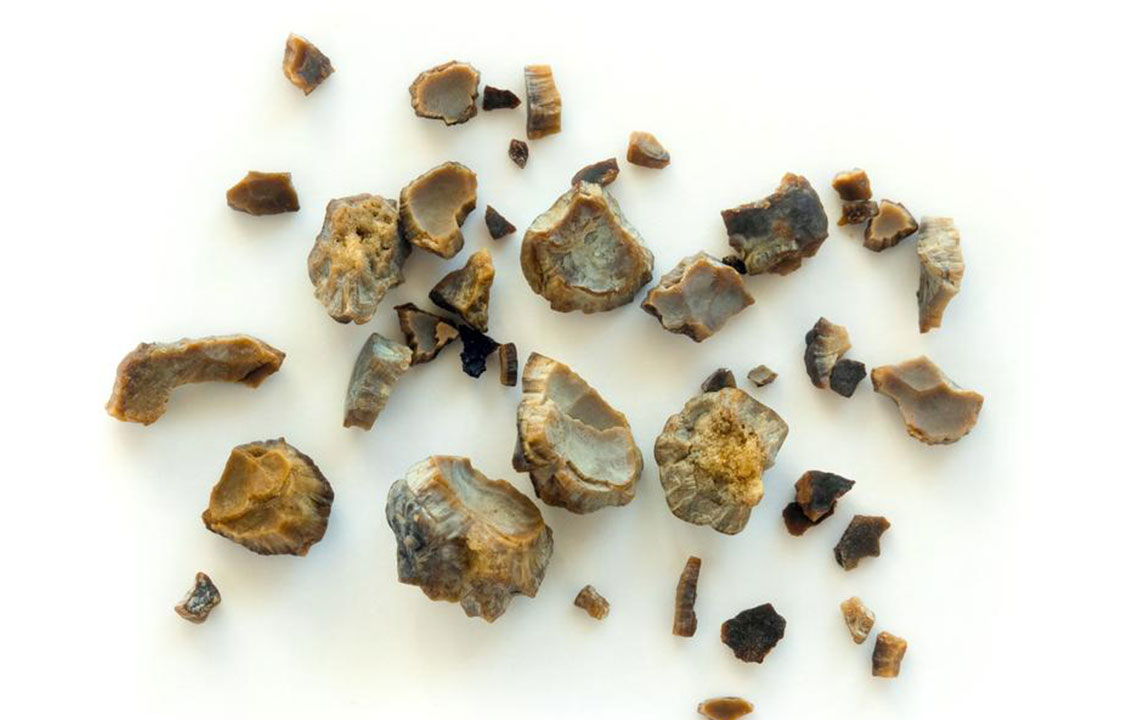What causes uric acid stones and common ways to treat them
Uric acid stones are crystallized masses of minerals stuck in the urinary tract or in the kidney. These stones are formed when the normally lower uric acid levels shoot up or/and the urine has a pH level below 5.5, i.e. it becomes acidic. If left undiagnosed, it may lead to serious health complications.
Causes of uric acid stone
- Hereditary conditions may contribute to an excess of uric acid. For instance, gout contributes to exorbitant levels of uric acid and further formation of crystals of uric in the joints.
- Excess consumption of purines is another contributing factor to high levels of uric acid.

Treatment of uric acid stones
Smaller uric acid stones (less than seven millimeters) do not need any special attention as they will be eliminated on their own.
Lower uric acid levels can be easily achieved by drinking more fluids – mainly water. A minimum of three liters of water is needed in order to lower uric acid levels. However, if lower uric acid levels are not attained even after taking all these measures and you end up disrupting the urine flow and develop an infection, an operation is unavoidable.

